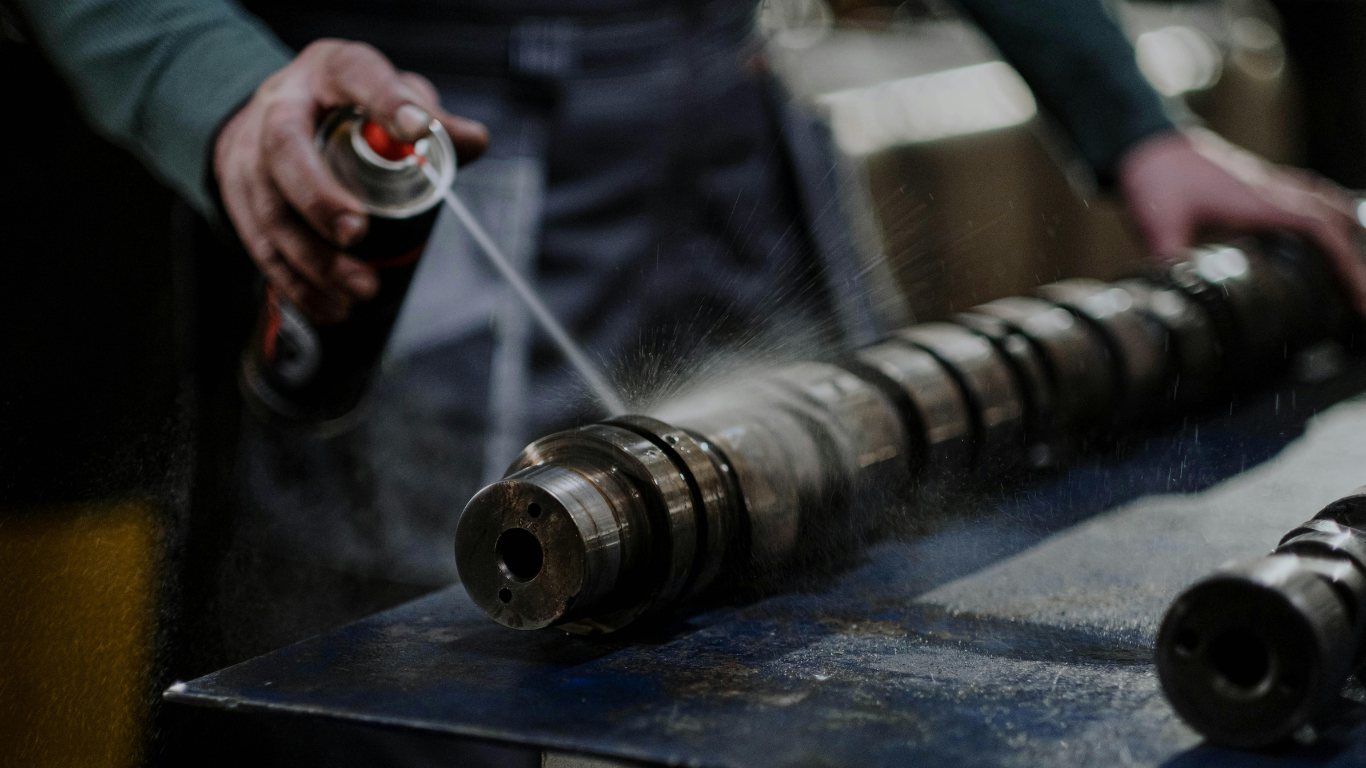Ways to stay safe when degreasing and cleaning auto or machine parts

Auto repair shops often rely on degreasers to clean grease, oil, and dirt from vehicle surfaces, particularly when working with brakes and engines. These degreasers can be sprayed directly onto parts or applied using a rag. However, many common degreasers contain solvents that, while effective, can pose significant health risks if not used properly.
The risks of using degreasers
Solvents are added to degreasers to enhance their cleaning power, and they often evaporate quickly at room temperature. These substances, known as volatile organic compounds (VOCs), can contribute to both indoor and outdoor air pollution. Auto repair workers may inhale these VOCs when spraying or come into contact with them on their skin.
Health effects of degreasers and VOCs
Immediate health effects of exposure to VOCs can include headaches, eye irritation, skin problems, and throat irritation.
Prolonged exposure can have more severe consequences, potentially impacting the lungs, liver, kidneys, central nervous system, reproductive health, and increasing the risk of cancer.
Ingredients to avoid when buying degreasers
When choosing degreasers, it's critical to read their labels and avoid products containing harmful ingredients, such as:
- Methylene chloride
- Methanol
- Methyl ethyl ketone (MEK)
- Perchloroethylene (PERC)
- Trichloroethylene
- Toluene
- Xylene
Safer alternatives for degreasers
To reduce health risks and promote a healthier work environment, auto repair shops should consider using safer degreasers. Options include:
Lower VOC-content or VOC-free degreasers
Non-chlorinated degreasers, which contain fewer VOCs than chlorinated ones
Water-based cleaners as substitutes for solvent-based cleaners
Using these alternatives not only reduces emissions and hazardous waste but also improves worker health and air quality.
Best practices for degreaser safety
Adopting safer products is only part of the solution. Following best practices, such as those suggested by the Minnesota Technical Assistance Program (MnTAP), can also reduce the impact of hazardous material exposures.
When using degreasers, always:
- Wear gloves and safety glasses
- Ensure strong shop ventilation with exhaust fans or open windows/doors
Graphic courtesy of the Northwest Center for Occupational Health and Safety (NWCOHS) Industrial Hygiene Program, University of Washington Environmental & Occupational Health Sciences
For further information on best practices, visit MnTAP's guide on degreasing.
The Environmental Protection Agency’s (EPA) Safer Choice Products website is also helpful in identifying and finding safer product options.
Ongoing research and efforts around health impacts of degreasers
A current study by the University of Washington has shown that workers using solvent-based degreasers in auto repair shops have elevated levels of toxic solvents in their blood and urine. The expectation is that using safer alternatives will decrease VOC exposures, reduce health effects for workers, and provide a better understanding of how safer products can minimize toxic exposures in the workplace.
Switching to safer degreasers and adopting protective measures is a proactive way for auto repair shops to safeguard their workers and promote a healthier environment.
 Translate
Translate
